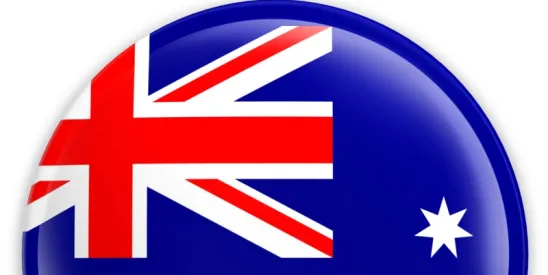*This information is accurate as of 5.00 pm on Wednesday, 13 May 2020 and is subject to change as this situation evolves. For our previous insight on cancellations and guarantees, click here.
Imagine for a moment…
… that you are a service provider. COVID-19 has resulted in a significant deterioration of your business and despite the beginnings of relaxation of restrictions, any real recovery is "way off". You are receiving countless COVID-19 induced requests for cancellation of pre COVID-19 booked services.
You decide to charge cancellation fees and issue credit vouchers instead of cash refunds to consumers to seek to limit your losses and help your business weather through this unprecedented time. You also decide to open bookings for new services to be provided in a few months' time (hoping that the next phase of relaxation would be in place by then). You get letters from the Australian Competition and Consumer Commission (ACCC) and a class action firm regarding your cancellation and refund policy despite you feeling like you are doing the best you can for your business.
How could that be and what can you do to avoid being in the above situation?
The key takeaways
-
Notwithstanding the partial relaxation of COVID-19 measures businesses must not relax in honouring their Australian Consumer Law (ACL) obligations. In particular, businesses must not mislead, act unconscionably or seek to rely on unfair terms in standard contracts when dealing with consumers, either in relation to existing service cancellations or during the promotion of new services.
-
Service providers should strive to treat customers fairly and holistically assess the fairness of any relevant contractual terms, its financial capability to offer alternative remedies and the number of customers affected in executing their refund and cancellation policies. Credit and travel vouchers may not always be sufficient remedies.
-
Where there are widespread losses to consumers, businesses who do not change their cancellation and refund approaches promptly could face significant reputational damage and attract both regulatory interventions (despite the 'light handed' regulatory approach the ACCC has adopted) and civil class actions.
What is the likely approach the ACCC will take to event cancellations?
The ACCC is taking a sensible 'light handed' regulatory approach, focusing on providing extensive ACL guidance to affected businesses, including through its special COVID-19 Task Force and its targeted COVID-19 guidance to small businesses and consumers.
However, where there are widespread losses to consumers and where the ACCC regards the relevant business to be financially capable of offering better remedies, it may intervene and pivot the business to improve their cancellation and refund policies.
As discussed in our previous article, the consumer guarantees obligations to provide a full refund to consumers may not be applicable if the cancellation was caused by government restrictions. Generally, as long as the business acts consistently with any prior representations they have made to consumers, either orally or through contractual terms, this would be sufficient to fulfil their ACL obligations.
ACCC's selective enforcement approach is reflected in the Flight Centre Group's recent decision after weeks of regulatory pressure imposed by the ACCC to not charge customers cancellation fees for COVID-19 induced travel cancellations. It is likely that the ACCC imposed significant regulatory pressure on the Flight Centre Group, having regard to the financial capability of Flight Centre to offer better remedies and the significant number of affected customers involved.
Can I avoid a class action?
Beyond regulatory enforcement, service providers who do not appropriately honour their ACL obligations may be at risk of being subject to a class action lawsuit. The way that businesses can seek to avoid class actions are to engage in good stakeholder management with all affected customers and provide clear, transparent and accurate communications regarding their rights and obligations. Further, affected businesses should consider seeking external guidance to refine their cancellation and refund approaches. We provide a topical case study to illustrate these points below.
Recently, Qantas responded to public pressure and relaxed its travel credit scheme to allow COVID-19 affected customers to use any accrued credit across multiple transactions until the credit is exhausted. This is in direct contrast to its previous stance of only allowing any accrued credits to be used in a single transaction and in a booking of the same value.
Despite Qantas' relaxation of its cancellation policy to appease consumer discontent, Slater & Gordon has announced that they are preparing a potential class action against major travel providers, including Qantas and Jetstar, appearing to allege that they have breached their contractual terms and engaged in unconscionable conduct in providing travel voucher schemes rather than providing their customers with a cash refund (which they may be otherwise be entitled to) following COVID-19 induced travel cancellations. There is a possibility that the class action suit may also extend to travel agencies and booking website operators such as Flight Centre and Webjet.
When should I start advertising for new services in anticipation of COVID-19 restrictions relaxing?
While COVID-19 restrictions are being gradually relaxed, it is uncertain when and to what extent such restrictions will be withdrawn. For example, travel providers need to take into account when domestic and international travel may be allowed to recommence in deciding to what extent and when to recommence promotion for new travel services.
Generally, businesses should avoid promoting new services where they have no reasonable basis to believe that the service will be able to proceed in light of current Government guidance. Otherwise, they may fall foul of their ACL obligation to not wrongly accept payment from consumers for a service when it is reasonable to expect that service will not be able to be provided. Further, service providers:
-
may also be alleged to engage in misleading or deceptive conduct in falsely advertising new services it is unlikely that they will be able to provide such services to consumers
-
will also need to incur increased administrative and financial burden if the promoted service is cancelled due to non-relaxation of government restriction and risk incurring further reputational damage.
However, if service providers decide to promote and accept booking for new services in anticipation of relaxation of Government restrictions, they should provide clear and prominent disclaimers. Further, they should be prepared to offer satisfactory consumer remedies in the event of further government induced cancellations caused by a delayed or non-relaxation of COVID-19 restrictions.
To view this alert as a PDF, click here.




 />i
/>i

